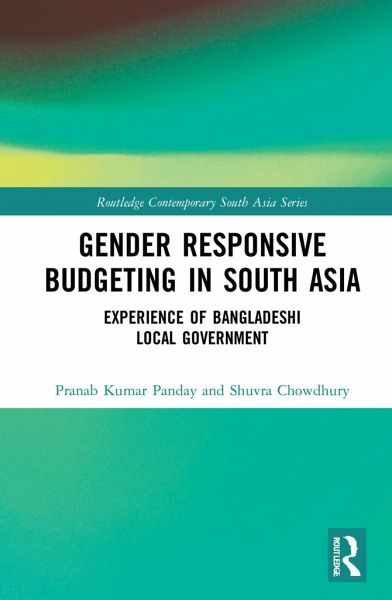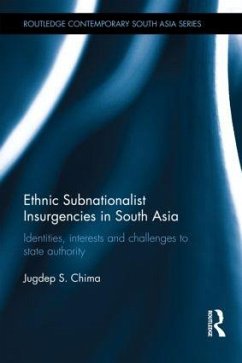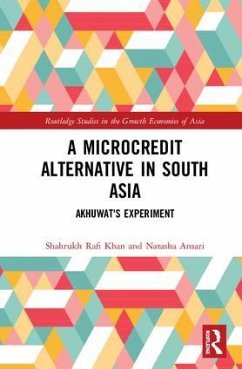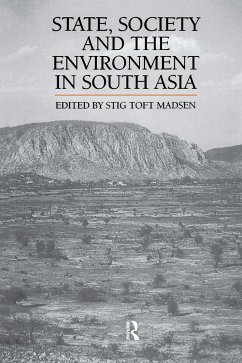
Gender Responsive Budgeting in South Asia
Experience of Bangladeshi Local Government
Versandkostenfrei!
Versandfertig in 1-2 Wochen
167,99 €
inkl. MwSt.
Weitere Ausgaben:

PAYBACK Punkte
84 °P sammeln!
This book analyzes the practice of local-level participatory planning and budgeting and its impact on gender responsive budgeting (GRB) in Bangladesh. The book offers a conceptual framework that brings into focus the contribution of successful participatory budgeting practice to ensure GRB - the examination of whether men and women fall under existing income and expenditure patterns differently. It suggests that the ideas of participatory budgeting and GRB should be evolving together to provide a concrete idea to address gender needs. The book provides a theoretical explanation that contribute...
This book analyzes the practice of local-level participatory planning and budgeting and its impact on gender responsive budgeting (GRB) in Bangladesh. The book offers a conceptual framework that brings into focus the contribution of successful participatory budgeting practice to ensure GRB - the examination of whether men and women fall under existing income and expenditure patterns differently. It suggests that the ideas of participatory budgeting and GRB should be evolving together to provide a concrete idea to address gender needs. The book provides a theoretical explanation that contributes to the consolidation of the practice of GRB at the local government level through participatory budgeting. Conceptualizing the process of participatory budgeting and GRB in the context of Bangladesh, the book will be of interest to researchers in the field of Development Studies, Political Science, Public Administration, and Gender, as well as Asian Studies, in particular, South Asian Studies.













